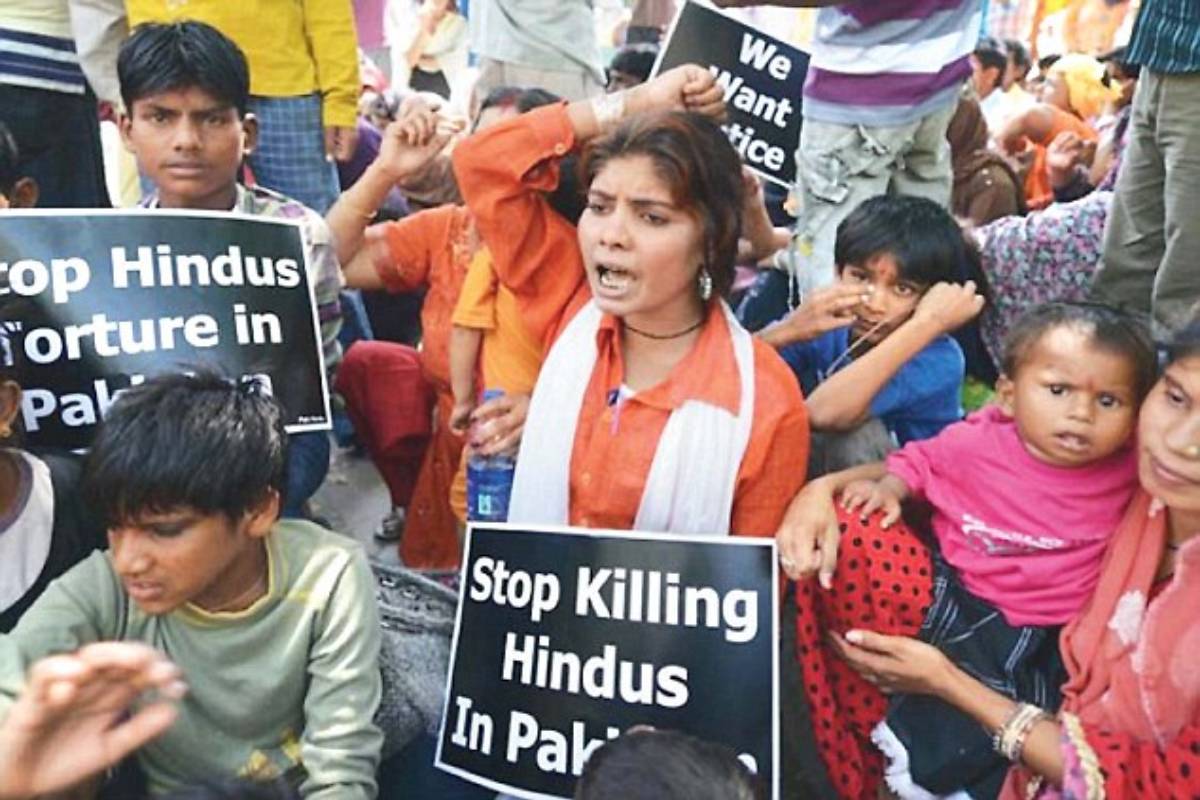NEW DELHI: Pakistan’s Sindh province has emerged as the epicenter of crimes against humanity, as per a new study published by New Delhi-based non-partisan think tank, the Centre of Integrated and Holistic Studies (CIHS).
With a population of 4.7 crore, Sindh is located in Pakistan’s southeast bordering the Arabian Sea and has a majority of Hindus concentrated in rural areas of the province. Sindhis, particularly Hindus, have become the target of widespread discrimination and persecution by the Punjabi-dominated bureaucracy and armed forces.
The majority of Hindu Sindhis, who are the original inhabitants of the lower Indus River basin, decided to stay in Pakistan following the partition of India in 1947. Nonetheless, thousands were forced to flee to India. On the other hand, large numbers of Urdu-speaking Muslims from India were encouraged to settle in Sindh.
“Property, businesses or agricultural land vacated by fleeing Sindhi Hindus were allocated to the immigrant Mohajirs, whereas Muslim Sindhis who remained there were prevented by the government from buying it. Sindhi Muslims argued that Mohajirs were given preferential treatment by the authorities,” the report says.
Even today, Sindhis claim to constitute a numerical majority in Karachi and many other municipalities. The influx of Punjabis from Pakistan’s North Eastern provinces, Balochis from the underdeveloped West, and Afghan and Pakistani Pashtuns from the northern territories has also threatened Sindhi control of their region, it claims.
The report highlights the plight of both Hindu and Muslim Sindhis, who have alleged discrimination and persecution by the state as well as Islamic hardliners. They demand a ban on further settlements of Punjabis and Pashtuns and insist that restrictions should be placed on the sale of properties and allotment of businesses to those not domiciled in the province.
The situation in Sindh has worsened over the years, with the government failing to protect Hindu places of worship and burial grounds. Only 20 out of 428 Hindu places of worship entrusted to the Evacuee Trust Property Board – a statutory body looking after properties left behind by migrating Hindus and Sikhs – were reported to be operational by 2014.
Hindus have frequently been subjected to discrimination in admission to higher education institutions, access to employment, forced religious conversions, murders, and restrictions on exercising their religion. The CIHS report states that the police have been reluctant to register, investigate, or intervene in cases of abduction, forced conversion, and forced marriage, particularly those involving Hindu women and girls.
Sindhi activists say that before partition, a highly educated Sindhi Muslim majority controlled provincial politics, but since 1947, Sindhi-language medium schools have been closed down or changed to Urdu-medium by the authorities. Karachi University, formerly a major Sindhi educational institution, is now controlled by the Mohajir provincial administration, with Sindhi students denied entry.
In its report, the CIHS calls on the Pakistani government to take immediate action to address the situation in Sindh to protect the rights of Sindhis and other minority groups, ensure regional and provincial autonomy, and put an end to continuous interference from Islamabad in the affairs of Sindh.
It also recommends that the Pakistan government ban further settlements of Punjabis and Pashtuns and restrict the sale of properties and allotment of businesses to those not domiciled in the province.
“Unhindered loot, abuse, rapes, abductions, forceful conversions and fake marriages of minorities especially Hindus, Christians and Buddhists must be taken cognisance of. The world community, human rights organizations, and the United Nations may have to work with different stakeholders, especially the victims, to provide relief,” it says.
The report also urges the world community, the United Nations, and human rights organisations to hold Pakistan’s religious, political, military leadership responsible for such heinous crimes.

